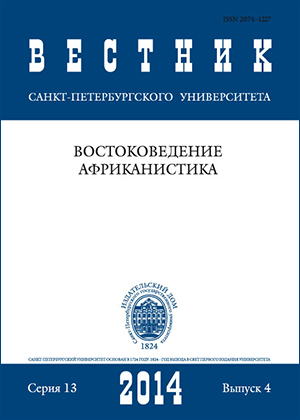The flicker effect in the novel of Khusraw Babakhani “Mermaid”
Abstract
The research material was the mystic novel “Mermaid”, created by contemporary Iranian writer Khusraw Babakhani (born 1959, Tehran). The purpose of research was the identification of patterns of building this prose miniatures. The article lists the main visual techniques which allude to the aesthetics of impressionism. The leading principle in the structural organization of works is defined by the author as flickering. The motive of flicker found in the descriptions of the water surface, air, fish scales and in the portraits of the main character — the mermaid. Dispersed glow is associated with mystery, mysticism, otherworldly reality. Landscapes painted by writer are very dynamic. Universal undulatory moving creates a phantasmagoric picture of continuous movement and transformation. The composition of the work is also based on the principle of flickering. Separate elements of the literary text, images, words are repeated. There are examples of sentences that contain contact pickups-tiebacks, their “graphic image” comparable with wave-like movement. “Fuzziness”, semantic mobility is demonstrated on the trope level of the text, because in some cases the words are included at the same time in the statement and in the metastatement, relate to the living and nonliving, the clips link seemingly incompatible fragments. These juxtapositions allow us to talk about the idea of metamorphosis, which is characteristic for the mythological tradition. Vague, dynamic forms, transitions from one state to the other refer to the poetics of the irrational, to the idea of universal unity. Refs 2.
Keywords:
Iranian literature, novel, Khusrav Babakhani, motive, character, artistic system, metamorphosis, flickering
Downloads
References
Downloads
Published
How to Cite
Issue
Section
License
Articles of "Vestnik of Saint Petersburg University. Asian and African Studies" are open access distributed under the terms of the License Agreement with Saint Petersburg State University, which permits to the authors unrestricted distribution and self-archiving free of charge.





